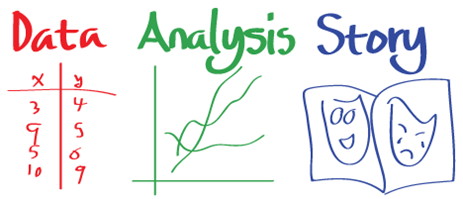To drive meaningful impact, nonprofit boards require not just the right members, but the right training. While attracting engaged individuals with diverse skills is crucial, equipping them with practical knowledge and tools ensures they can fulfill their responsibilities effectively. This guide provides actionable steps to develop a comprehensive board training program that empowers your organization.
.

What is Nonprofit Board Training?
Nonprofit board training, or board development, equips members with the skills, resources, and understanding they need to execute their roles effectively. From defining responsibilities to fostering inclusive decision-making, an effective program strengthens both board performance and overall organizational impact.
Here’s how to craft practical training programs across nine critical aspects of nonprofit board involvement.
Clarifying Roles and Responsibilities
Your board members must understand what’s expected from them. Training should include the following points for practical implementation:
- Governance vs. Management: Clearly distinguish the board’s role from the staff’s responsibilities. Use tools like diagrams or workflows to visually outline accountabilities.
- Legal Obligations: Explain duties like the duty of care, loyalty, and obedience using relatable case studies or interactive workshops.
- Strategic Oversight: Provide members with templates to monitor programs and steer initiatives while aligning them with the nonprofit’s mission.
Focus on interactive examples, such as assessing proposed programs against the mission, to provide clarity and confidence.
Building an Inclusive Board
Diversity drives better decision-making and innovation. To ensure your board reflects your community’s needs:
- Recruit with Intent: Use questionnaires and targeted outreach to attract members from diverse backgrounds.
- Provide Cultural Competency Training: Host workshops or forums where board members can learn how different perspectives strengthen decision-making.
An inclusive board isn’t just a goal—ensure members have the tools to implement strategies that support equity and innovation.

Representing Your Nonprofit in the Community
Board members act as your organization’s ambassadors. To help them represent your nonprofit effectively:
- Train on Networking: Offer role-playing exercises where members practice engaging with local leaders, businesses, and stakeholders.
- Equip Them with the Mission: Include a mission-aligned communication toolkit with talking points, brand guidelines, and FAQs.
Effective ambassadorship ensures board members can advocate confidently and cultivate valuable community partnerships.
Data Driven Decision Making
Empower your board with data to make strategic choices. Training should include:
- Interpreting Data: Teach members to analyze reports on program performance, finances, and community impact.
- Setting Goals: Share a framework like SMART goals to align long-term objectives with measurable outcomes.
- Actionable Tools: Introduce accessible dashboards or platforms for data visualization.
By eliminating guesswork, data empowers boards to focus their efforts where they’re most needed.

Strengthening Communication
Collaborative and effective communication is vital for board productivity. Practical training in this area should cover:
- Streamlining Meetings: Teach participants how to create and follow structured agendas that respect time limits and encourage collaboration.
- Improving Communication Outside the Boardroom: Use tools like Diligent to keep collaboration ongoing.
- Evaluating Strategies: Assess whether current methods of communication (emails, calls, meetings) best serve the organization’s needs.
Providing actionable templates for agendas and suggesting tools ensures communication is productive and organized.1o.
Running Effective Meetings
Effective board meetings save time and improve engagement. Create meeting-centered training materials, such as:
- Guidelines for Chairpersons: Include best practices for steering discussions and involving every attendee.
- Templates for Decision-Making: Provide clear processes, like voting structures or consensus models, for arriving at actionable outcomes.
- Accountability Tools: Use task-tracking software to assign follow-ups and monitor progress on decisions.
The more tactical and goal-oriented board meetings are, the better the outcomes for the team and the organization.

Ensuring Legal and Regulatory Compliance
Nonprofit boards must align with legal obligations. Focus training here on:
- Policies on Confidentiality & Conflicts of Interest: Provide sample templates for board members to sign.
- Federal, State, and Local Compliance: Host regular seminars with legal experts to highlight changes in regulations.
- Fundraising Ethics: Educate members on adhering to ethical standards when engaging with stakeholders.
A robust understanding of compliance fosters trust and eliminates risks.
Building a Culture of Fund-Raising
- Building a Culture of Fundraising
Fundraising responsibilities often feel daunting to board members. To support them:
- Define Their Role in Fundraising: Create workshop sessions where members learn how to tell the nonprofit’s story to potential donors.
- Teach Best Practices: Share step-by-step guides for approaches like stewardship, making calls, or writing outreach emails.
- Foster Collaboration: Encourage teamwork between staff and the board by co-hosting brainstorming or donor strategy sessions using real-life cases.
An effective fundraising culture starts with board members who can clearly support and articulate your mission.

Sustaining Accountability
Accountability not only ensures progress but builds trust internally and externally. Include in your training:
- Goal Monitoring: Use project management systems to track commitments and deadlines.
- Regular Evaluations: Incorporate review processes for assessing individual contributions to collective successes.
Setting concrete accountability measures ensures your board operates cohesively and efficiently.

Take Action Now
Implementing practical, tailored board training equips your members with confidence and tools to drive meaningful change. Explore tailored resources, like The Nonprofit Quarterly and the Nonprofit Leadership Center, to get started—or develop your own training plan, focusing on your board’s unique needs.
Remember—a well-trained board stands at the core of every successful nonprofit. With the right groundwork, your team will be ready to champion your mission and create lasting impact. Are you ready to empower your nonprofit board and amplify its impact? Whether you’re starting from scratch or refining your existing training, we’re here to help.
Call Sunshine Nonprofit Solutions today for a free consultation to develop a tailored board training program that aligns with your unique mission and goals. Or subscribe to our blog for more actionable insights to elevate your nonprofit’s success.
.
Dr. Cathleen Armstead brings over 25 years of experience in nonprofit organizations and Head Start programs, with a strong academic foundation in family services and early childhood development. A passionate advocate for social and economic justice, she has excelled in leadership roles, including serving as a director for various Head Start organizations. With an impressive 88% success rate in grant writing and a 100% success rate with DRS grant proposals, Dr. Armstead has earned recognition as a skilled strategist and grant writer. She founded Sunshine Nonprofit Solutions to provide nonprofits with tailored support, encompassing grant funding, strategic planning, leadership development, and board training.
A seasoned speaker and trainer, she presents regularly at Region IV conferences and has contributed to academia as a grant evaluator at the University of Miami’s School of Education. Currently, she is working on a nonprofit leadership guide, continuing her mission to empower organizations and foster positive change.
